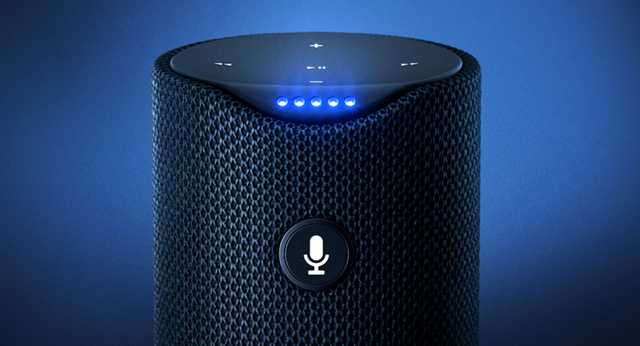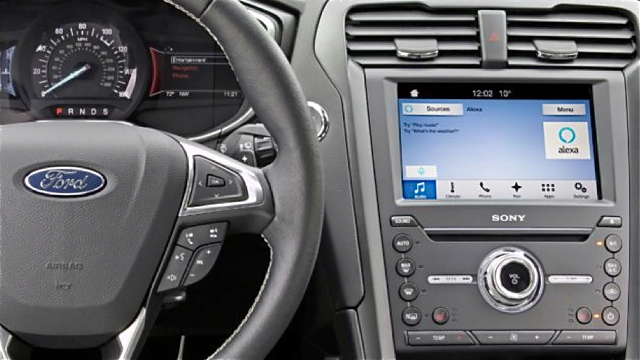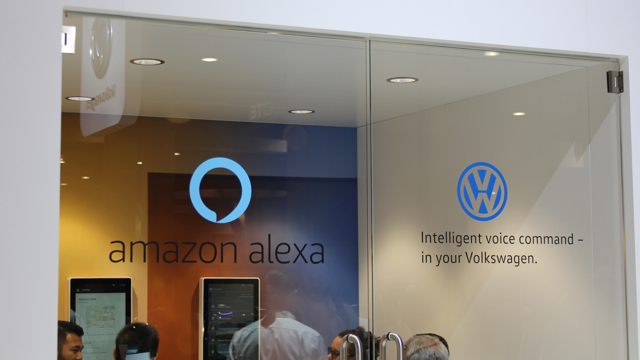Digital Assistants Grab Spotlight at CES, Alexa Leads the Pack
January 13, 2017
Virtual assistants that serve as a new voice-activated hub to the connected smart home and our ecosystem of personal electronics have grabbed the spotlight at this year’s CES. Aided by advances in artificial intelligence software that enable improved speech interaction with devices, tech giants such as Amazon, Google, Microsoft and others are battling for dominance in the digital assistant space. These companies are looking beyond smartphones and PCs toward a world in which voice-based systems become a standard feature in TVs, cable boxes, home appliances and connected vehicles. If the headlines are any indication, it seems that Amazon’s Alexa has taken an early lead in this race.
“Google is using CES to tout tie-ups with its smart Home speaker, a device similar to Amazon’s Echo,” reports Bloomberg. Microsoft “has invested heavily” in its Cortana assistant, and Samsung “is set to unveil its assistant tech for its phones and other devices in 2017.” Meanwhile, Facebook CEO Mark Zuckerberg recently “showed off a smart home assistant he said he coded himself.”
Prior to CES, CTA chief economist Shawn DuBravac suggested that as many as 700 Alexa applications could launch during the show. In his annual Tech Trends to Watch forecast, DuBravac explained, “Hub devices are key to vocal computing, whether it’s the smart home, Uber or financial institutions.” He predicts that we’ll see “another $5 million in sales of voice activated digital assistants in 2017, doubling the existing market.”
Researcher Tractica anticipates that 40 million homes will use a voice-based digital assistant by 2021. Juniper forecasts the smart home industry will reach $83 billion in sales this year and $195 billion by 2021.
According to Juniper, the “Big Four” —Alphabet, Amazon, Apple and Samsung — will continue to steer the industry and “further solidify their positions” as leaders.
“Smart home hardware and services covers a gamut of categories, including entertainment, automation, health care and connected devices,” reports CNET. “The fastest-growing areas over the next five years are expected to be home automation and smart appliances, according to Juniper.”
While there seems to be some growing misconception regarding the definition of true AI, largely a result of the branding and marketing campaigns of companies eager to jump on the bandwagon (read Distinguishing Between Machine Learning and AI), it was clearly one of the leading themes at CES 2017. Interestingly, Amazon seemed to generate the most attention, despite not having much of an official presence at the show.
The company’s Alexa virtual assistant, gaining in popularity as the voice of Amazon’s Echo speakers, was everywhere at CES — appearing in everything from LG refrigerators, a new Lenovo speaker, Whirlpool appliances, and Ford vehicles to headphones from Sensory and ONvocal, the dancing Lynx robot from Ubtech Robotics, even a voice-activated trash can from Simplehuman. Element, Westinghouse and Seiki are manufacturing TV sets that include Fire TV and a remote with Alexa voice control. And Huawei’s Mate 9 is the first smartphone to include Alexa.
“Even when companies weren’t touting new integrations with Amazon’s assistant software,” explains TechCrunch, “they were reminding media and attendees of previous skill introductions, including Hyundai with its Blue Link software, and BMW with its Connected set of Alexa capabilities.”
Now the question becomes: “What’s next?” CE manufacturers and CES attendees are clearly enamored of digital assistants, but how will consumers respond? While voice-powered virtual assistants may have taken the place of this year’s killer gadget, they now have to prove their value as part of our digital lifestyles.
“Consumers will still have to live through the bugs and growing pains of voice assistants over the next few years,” notes The Washington Post. “Machines are now learning from us, which in some ways resets the cadence of innovation itself. Technological improvement is now about constant, small steps rather than giant leaps. It’s less about adding to your life, and more about steadily subtracting hassle from it.”
Related:
Tech’s Biggest Showdown Is Unfolding in Your Living Room, Wired, 12/10/16
Mattel Aristotle Is an Amazon Echo That Understands Your Kids, Too, CNET, 1/4/17
Volkwagen Is Adding Amazon Alexa to Its Cars, Engadget, 1/7/17
Google Assistant Is Coming to Android TV, The Verge, 1/4/17
How Amazon and Nvidia Won CES This Year, TechCrunch, 1/8/17
Coming From Automakers: Voice Control That Understands You Better, The New York Times, 1/5/17
At CES, New Digital Assistants Restart Smart Home Race, Bloomberg, 1/5/17
Amazon’s Alexa Is Everywhere at CES 2017, The Verge, 1/4/17




No Comments Yet
You can be the first to comment!
Sorry, comments for this entry are closed at this time.